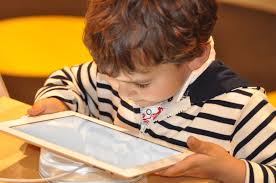In today’s digital age, children spend a considerable amount of time on screens. While concerns about excessive screen time persist, it’s crucial to realize that not all screen time is created equal. Instead of simply limiting it, parents can convert screen time into valuable learning experiences. Engaging kids in online activities like Solitaire and Mini Crossword puzzles is an excellent way to achieve this. These games are not only entertaining but also provide significant cognitive benefits, especially for beginners.
Importance of Productive Screen Time
Screen time, when used wisely, can have a profound impact on a child’s development. Transforming it into learning time helps in:
- Boosting Cognitive Skills: Many classic Games enhance problem-solving abilities, critical thinking, and memory.
- Encouraging Focus and Patience: These games require concentration and patience, skills that are beneficial in academic and daily life.
- Providing Safe and Controlled Learning Environments: Online mini crossword can offer a safe space for children to explore and learn without real-world consequences.
Impact on Brain Development
Engaging in games that challenge the mind stimulates brain function and development. Studies show these activities can lead to:
- Improved Memory: Regular engagement with these games helps in improving both short-term and long-term memory. The repetitive nature of Solitaire, for instance, aids in retaining patterns and strategies.
- Enhanced Problem-Solving Skills: Both games require players to think critically and plan several steps ahead, fostering strategic thinking.
- Better Focus and Concentration: These games demand attention to detail, which can help in enhancing a child’s ability to concentrate on tasks for longer periods.
Solitaire: More Than Just a Card Game
Solitaire is a timeless card game that has been around for centuries. It is ideal for beginners because it is simple to understand. Here’s how playing this classic challenge can benefit kids:
- Developing Strategic Thinking: This card game requires planning and foresight. Kids learn to anticipate future moves and think several steps ahead.
- Enhancing Patience and Persistence: Winning at it doesn’t happen by luck alone. It teaches children the value of patience and persistence, as they often need to try multiple strategies before succeeding.
- Improving Memory: Remembering the cards and their positions in Solitaire helps in boosting memory skills. Kids learn to keep track of sequences and patterns, which is beneficial for their cognitive development.
Mini Crossword: A Fun Way to Learn Words
Mini Crossword puzzles are a great way to engage kids in learning while having fun. Here’s why they are beneficial:
- Vocabulary Building: Mini Crossword puzzles introduce children to new words and definitions, expanding their vocabulary. This is especially useful for young learners who are still building their language skills.
- Spelling and Grammar: These puzzles help kids learn correct spelling and grammar in an interactive and enjoyable way.
- Critical Thinking and Logic: Solving Mini Crossword puzzles requires logic and critical thinking. Kids learn to think about word meanings and how they fit into given spaces, enhancing their problem-solving skills.
Brain’s Reaction to Cognitive Games
When children play cognitive games like Solitaire and Mini Crossword, their brains undergo significant changes. The activities stimulate various parts of the brain, promoting neuroplasticity—the brain’s ability to adapt and change throughout life. This process is crucial for learning and memory.
- Frontal Lobes Activation: These games activate the frontal lobes, which are responsible for decision-making, problem-solving, and planning.
- Hippocampus Engagement: The hippocampus, crucial for memory formation, is engaged during these activities, helping improve memory retention.
- Dopamine Release: Successfully completing a challenging game or puzzle releases dopamine, a neurotransmitter associated with pleasure and reward, which reinforces positive learning experiences.
A Stat to Consider
Kids in the United States between the ages of 8 and 12 spend an average of 4-6 hours a day in front of screens, per a study conducted by the American Academy of Paediatrics. By incorporating educational games like Solitaire and Mini Crossword, this screen time can be transformed into productive learning time, helping in cognitive development.
Conclusion
Converting screen time into learning time is vital for children’s development in today’s digital world. By engaging in games like Solitaire and Mini Crossword, children can sharpen their brains, enhance their cognitive skills, and enjoy the process of learning. These activities provide a fun and interactive way to boost memory, improve focus, and develop problem-solving abilities. Parents can feel confident that their children’s screen time is contributing positively to their growth and education. So, the next time your child picks up a device, encourage them to play a game of cards by using their intelligence or solve a Mini Crossword puzzle—they might just be learning more than you think.

